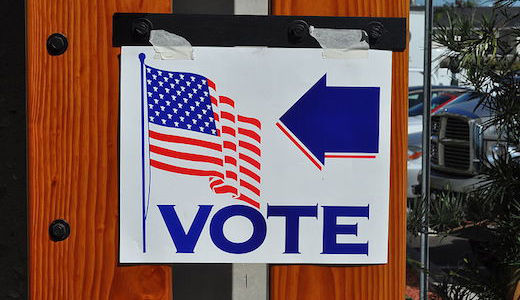
Editor’s note: This is part one of a two-part series on exploring the individual conscience as political power. Part two can be found here.
A friend of mine recently shared her amusement and dismay at those who criticize Sanders’ supporters who refuse to vote for Hillary because it goes against their conscience. “Voting your conscience is ‘infantile’ now according to those who can’t see through the smoke and mirrors,” she wrote on Facebook.
This status update appeared with a news story about Clinton attending a $50,000 a plate fundraising dinner in Aspen, Colo., sponsored by fracking magnate Charif Souaki.
As a progressive who felt the intensity of the Bern, I had made peace with supporting Hillary Clinton. Her presidency, instead of just doing less harm could actually help broad swaths of our population struggling to pay for college, to make ends meet despite working hard in an economy mired in wage stagnation, to access affordable health care, and to negotiate paths to citizenship, not to mention to secure a right to vote.
Yet I cringed at the news about her apparent cozying up to frackers. Here she is, it seemed, showing herself to be the corporate shill a substantial sector of the left has painted her to be.
The alarm had been triggered and was sounding loudly in my head with the conditioned political narrative I thought I had worked out of my system, “Lesser Evil…Lesser Evil…Lesser Evil.” The words of Jill Stein from a television ad I had recently seen echoed in my mind, “It’s time not to vote for the lesser evil but the greater good.”
Lesser evil or greater good: a case study – my own
I want to resist this lesser-evil narrative that is so deeply and uncritically entrenched in the political consciousness of many progressives, including my own, and reflect on what it means to vote one’s conscience and also what it means to vote for the greater good.
The act of declaring one is voting one’s conscience as opposed to voting for the “lesser evil” has become a kind of default rhetorical flourish for asserting a principled ideological stand against compromising one’s values in casting one’s vote.
I know. Been there and done that.
Back in 2000, following my conscience, I cast my vote for Ralph Nader. When I say I voted my conscience, I mean I voted for the candidate who most closely aligned with my ideological orientation regardless of whether or not the candidate was considered to have a chance at winning the election. I believe this is generally what people mean when they talk about voting their conscience-that they voted according to a sense of commitment to the rightness of their political beliefs and values.
When I look back, however, I see what I take to be a more layered and complex way of thinking about what it means to vote one’s conscience. Knowing what I know now, that President George W. Bush and Vice President Dick Cheney pushed us into the Iraq war, I certainly would not have been voting against my conscience to cast a vote for Gore.
In this case, voting for the candidate who most closely aligned with my political beliefs, even if it meant potentially aiding the election of two people who would unleash untold destruction and harm on the people of our nation and the globe, would not have been voting my conscience. Voting my conscience would have meant stopping Bush and Cheney.
While perhaps I couldn’t have known then the full monstrosity that the Bush/Cheney administration would become, this election cycle seems to reveal pretty clearly the monstrousness of Trump and the potential damage he could unleash on people’s lives at home and abroad.
Conscience as ideology
Voting my conscience in this scenario is more complex than simply an ideological purity test, determining which candidate espouses a politics most closely aligned with my own. I do think Clinton will act in positive ways to aid and protect immigrants, to ameliorate income inequality, support public education, address the racist carceral state, and work to make sure people have access to affordable health insurance, even if her policy proposals might not be as transformative and far-reaching as I’d like.
I don’t feel I’m voting against my conscience or compromising my beliefs by voting for someone I believe will act to help people and against someone I’m pretty sure would attempt to do a lot of harm.
But these considerations aside, my point is not to tell people how to vote or what their conscience dictates, but to raise questions about what it means to vote one’s conscience and to interrogate the ideological purity or alignment test as overly simplistic.
Surely, were I to vote for Clinton, I would in some sense be voting my conscience according to my rationales above, but not, I believe in the conventional rhetorical way we use that phrase, which is to mean I am voting for the candidate who most closely gives voice to my politics, all other consequences be damned.
Rather, the rationale for my vote for Clinton would exceed my sense of the rightness of my political ethos and take into consideration what my vote would mean for many other sectors of our population living and suffering outside of my particular experiential orbit. In short, it requires that act of empathy some of our politicians have called for in addressing the problem of racism, which means moving beyond our limited realm and taking into account the needs and experiences of others.
Editor’s note: This is part one of a two part series. The second part starting with “From Jiminy Cricket to Thoreau” will be published tomorrow.
Photo: Tom Arthur/CC/Wikimedia







